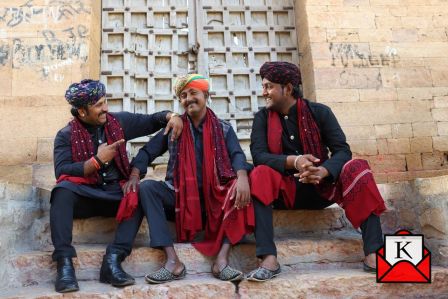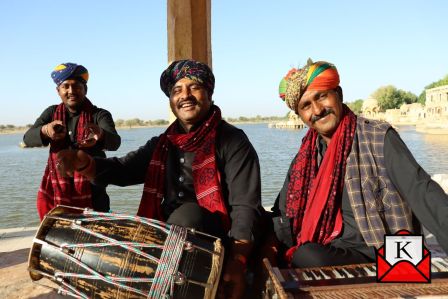Explore Magic Of Rajasthani Culture In KCC’s Conclave Ramjhol 1.0


An examination of Rajasthani culture and its connections to Kolkata is presented in Ramjhol 1.0 – Rajasthan: Yesterday, Today, Tomorrow. It is not just an exhibition in the conventional sense. Rather, it is a conclave of Rajasthani culture on various platforms, with the KCC attempting to touch upon all aspects of creativity through this conclave, including contemporary art, theatre, film, craft, design, architecture, and history as well as language and literature. The conclave culminates in three days of performances, workshops, talks, and exhibitions.
The Conclave’s research makes an effort to go beyond the typical festive clichés, such as the typical contrast between rural and royal, which is generated by the tourism business. Ramjhol 1.0’s perspective on Rajasthani culture departs significantly from the norm and emphasizes elements like the Rajasthani language, literature, and the state’s own poetic and musical traditions.
Dingal and Maand, two uncommon forms of poetry and music that originated in the region’s distinctively feudal environment, will be showcased during the Conclave. Maand has a distinctive collection of songs, murkis, and khatkas, and Dingal has distinctive metres, performance techniques, and alliteration patterns like.
Following the catastrophic drought of 1899, migration from Rajasthan to Kolkata rose significantly. Following this increase in migration, some of the most magnificent havelis in Rajasthan—particularly in Shekhawati—were constructed with the money made from business operations here in East India. KCC is thrilled to give a discussion on this chapter against the backdrop of Kolkata and Rajasthan’s histories.

While Ramjhol 1.0 engages with the “traditional,” it will also present the “contemporary”: OTT platforms and social media adaptation, new literature that engages with a history of migration, theatre based on multilingual adaptations of traditional folk stories, and contemporary clothing made using traditional weaving and embroidery forms. The Conclave also provides workshops, film screenings, and grand performances.
Scholars, poets, craftsmen, and artists from across Rajasthan including Bikaner, Barmer, Alwar, and Beawar will be participating in this Conclave.
The Centre offers free entry to the public and is open between 11 a.m. to 6 p.m.
For more information, visit www.kolkatacentreforcreativity.org.
Priyanka Dutta
